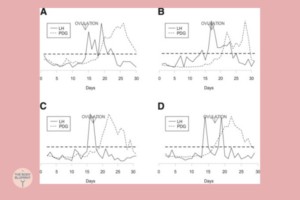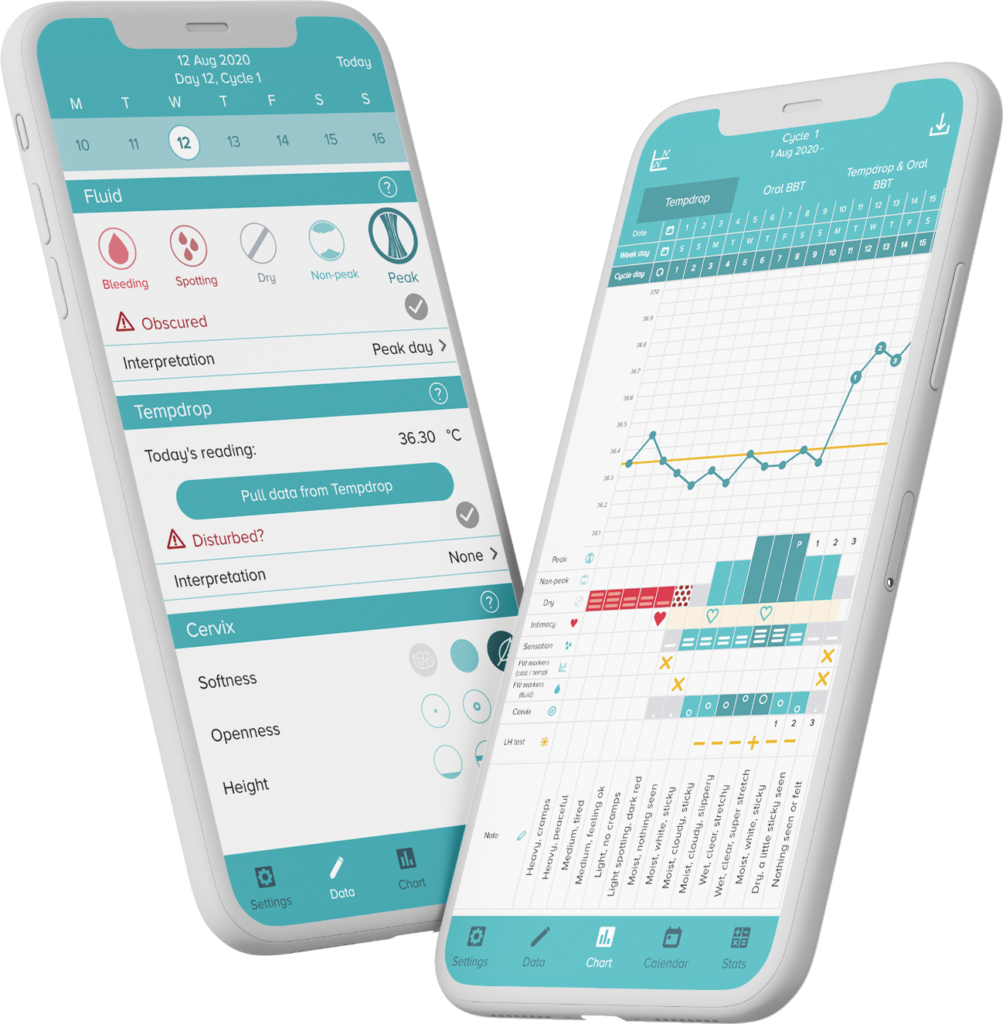So, you’ve entered the world of LH testing, eager to properly understand your fertile window and boost your chances of getting pregnant or avoid pregnancy without hormonal birth control. But what if your LH test isn’t playing ball? In this blog, I’m going to cover 4 possible reasons why you could be struggling to achieve a positive reading on your test, but before this, let’s talk about what LH testing is, and how useful it can be when charting your cycles with Fertility Awareness.
What is LH testing?
Luteinising hormone (LH) is a key player in your menstrual cycle. LH testing, also referred to as OPK (Ovulation Predictor Kits) testing, is used to help identify the all important fertile window when trying to achieve or avoid pregnancy. These tests detect the surge of LH, which occurs just before ovulation.
When you test for LH and detect its peak successfully, it indicates that ovulation is likely to occur within the next 24 to 36 hours. This can be incredibly useful information, whether you’re looking to conceive or use Fertility Awareness to avoid pregnancy naturally.
However, LH levels can vary significantly among women, and research shows that the size and duration of LH surges can differ considerably. This variability means that what works for one person might not work for another. Additionally, women with hormonal imbalances, such as PCOS, may experience elevated levels of LH, leading to “false positives” throughout their cycles. These inconsistencies can make it challenging to rely solely on LH testing.

Image from a study showing varying LH surges – 42%-48% of cycles have a short LH surge before ovulation, 33%-44% of cycles have 2 LH surges, and 11%-15% of cycles have a “plateau” pattern (where levels of LH remain high after the initial surge).
Now that you understand how helpful LH testing can be (and also some of its limitations) let’s discuss 4 possible reasons you’re not seeing a positive test throughout your cycle.
1. You’re Missing Your Window:
Ever heard of the phrase “blink and you’ll miss it”? Well, that’s the story of some folks’ LH surges. If yours is short, testing once a day might just not cut it. Try testing once in the morning and once at night. This will narrow down the time between tests and may be just what you need to get a result.
2. You have a long cycle
Do you have a cycle that seems to stretch to infinity? You might be jumping the gun with your LH test. Regularly testing from early on in your cycle can cause fatigue, but it can also be super costly! Consider holding off until you notice a shift in your cervical mucus. Cervical mucus is a sign that estrogen is starting to pick up in the cycle and is a crucial sign to watch for when monitoring for ovulation. It’s like waiting for the signal at the traffic lights – timing is everything! If you’d like to know more about cervical mucus, check out this blog 👉🏽Cervical Mucus: The Secret to Knowing if You’re Fertile

3. You aren’t ovulating
Life can throw some serious curveballs, and your body might decide it’s not in the mood for ovulation this month. Stress, illness, hormonal imbalances – they all have the potential to delay ovulation. Keep an eye on your cervical mucus and BBT (Basal Body Temperature) for clues. Sometimes, Mother Nature just hits the snooze button on ovulation, but these other signs can give you loads more “real time” data about ovulation.
4. The Test’s Gone Rogue:
Ah, the classic case of a faulty gadget. It happens to the best of us – even our trusty LH tests can have an off day.
Did you know?
Ovulation tests simply don’t work for about 10 % of women.
A lot of tests utilise thresholds that are designed around averages of what an LH surge “should” look like.. However, we don’t all have the same hormonal patterns and levels. At least 1 in 10 women surge at a level that typically isn’t detected by these tests. People with low LH levels can end up seeing “negative” all the time… even if they are ovulating.
Ready to chat? Book a free 30-minute consultation with me here. Let’s make your journey to pregnancy as smooth and enjoyable as possible! 🌺✨
Wishing you balanced hormones & baby dust

Helpful resources
Download my FREE Preconception guide here 👉 Download the Guide
Join my exclusive TTC Community here 👉 Join the community
Book a free 30-minute Fertility Chat here 👉 Book a free chat
Connect with Hannah
Instagram 📱- @Thebodybluprint_
Facebook 🥳 @TheBodyBluprint
I’d love to hear from you! If you have any questions about fertility tracking, the blog, or just want to share your own experiences, please don’t hesitate to reach out below ❤️
Email ✉️ Hannah@thebodybluprint.com.au
If you’d like to learn more about achieving pregnancy with FAM, check out my signature program Transform Your Cycle here, or head to the programs page for an overview of all the supports available.




